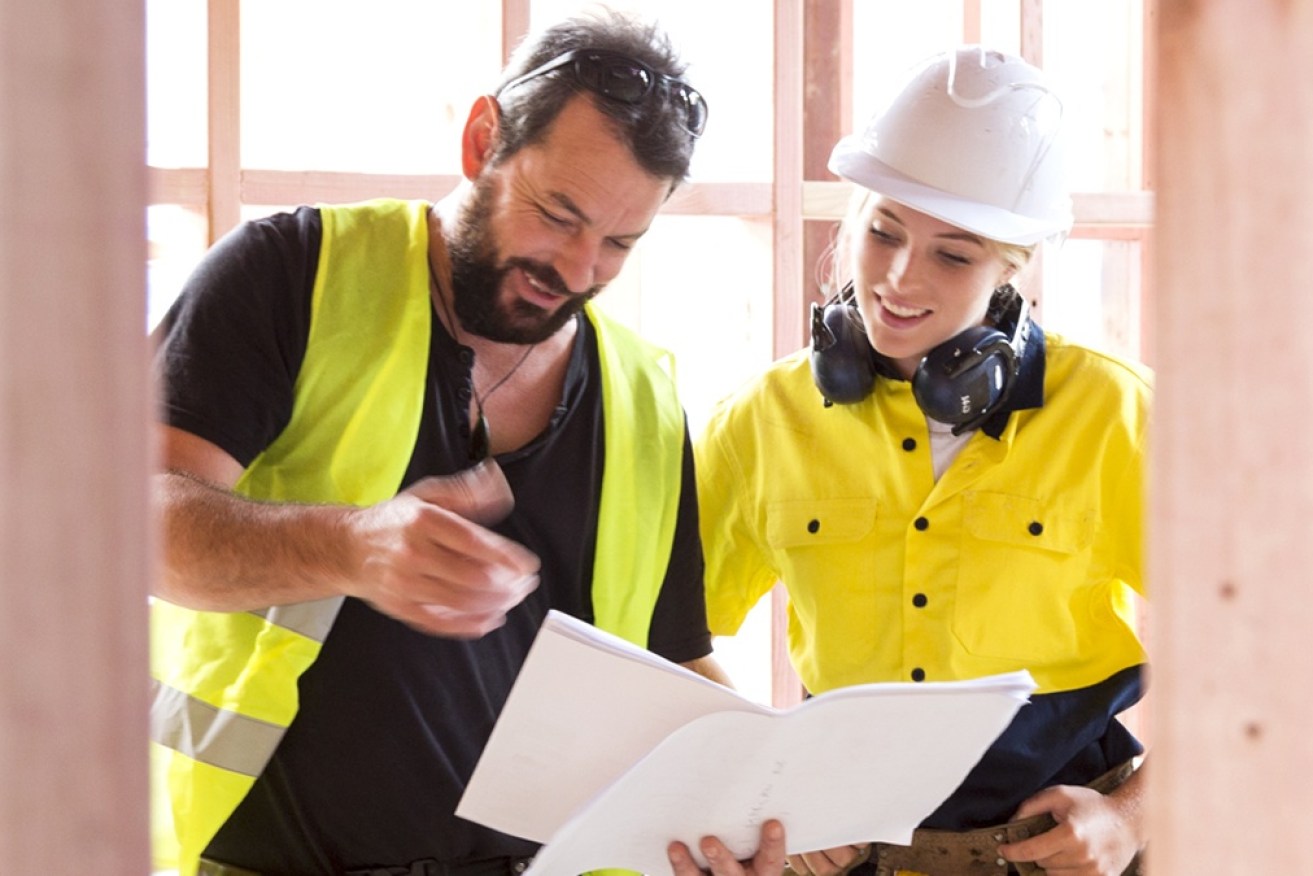Sick of your job? You could earn $100,000-plus working as a tradie


Undertaking a trade is perceived as being a second-choice career for those who don’t go to university, which needs to change. Photo: Getty
Australia is in the midst of a major tradie shortage, with scarcities in bricklaying, carpentry and roofing, among other trades.
National cabinet recently committed to building 1.2 million homes over the next five years, meaning more on-site apprentices, tradies and workers will be needed to help the government fulfil this commitment.
This has created an opportunity for Australians who might be contemplating making the leap out of their job and into a trade, which could ultimately lead to self-employment.
Right now, there are more than 2100 jobs for all sorts of tradies advertised on jobs site Seek.
According to jobs site Indeed, a builder in Australia can expect to earn about $86,637 a year, while a plumber can expect an average salary of $77,592 a year.
Highest-paying trades – annual earnings:
Carpenters: $70,616
Plumbers: $98,488
Construction and site managers: $179,400
Electricians: $95,108
Bricklayers: $120,060
Concreters: $121,800.
If you’re really fed up, Jim’s Mowing guarantees that its franchisees gross $115,920 a year, which isn’t bad for mowing lawns.
However, the latest salary guide from the Builders Academy Australia shows that one in 10 tradies earns more than $200,000 a year.
Earnings are affected by the level of training completed, with tradies who have completed an apprenticeship able to earn more.
Years in the business and location can also affect earnings, while the difference between commercial and residential jobs can also affect earnings.
Growing a business
A career as a tradie appealed to 27-year-old Fouad Reaiche, who launched out on his own two years ago after a range of roles working for other companies in the building and construction industry.
The Sydneysider admits the timing felt right as the building frenzy amid the pandemic took hold.
“I had worked for larger corporations and made the conscious decision to give it a go myself,” he said.

Long hours have been the only downside for Fouad Reaiche as he establishes his business. Photo: Fouad Reaiche
He’s busy building a name for himself as a tradie who is able to handle residential jobs, work for real estate agencies handling rentals, and also do commercial fitouts across Sydney with his business, ETH Construction Group.
Although he is working long days at the moment, he hopes to have more consistent hours once his business is established.
“I fix people’s problems and challenges, which gives me a sense of pride,” he said.
Some tradies are concerned about work drying up amid the cost-of-living challenges, but he’s focused on building a business that has a diverse range of clients to ensure there’s always a consistent stream of work.
“If you’re a good tradie and you’re able to talk to clients and deliver on your promises, there will always be plenty of work out there for you,” he said.
“Under-pricing and under-delivering is common. There’s a lot of cowboys in the industry, so you have to make sure the work speaks for itself.”
Challenges for tradies
Right now, tradies are facing challenges on a number of fronts.
Three-quarters of tradies (74 per cent) are concerned about their job pipeline as consumer spending on home improvement continues to slow.
Research from online tradie marketplace hipages found that the cost of materials remains the biggest challenge facing tradies.
The cost-of-living crisis, increasing business costs such as petrol and insurance, reducing demand and materials shortages are also significant factors.
Of course, tradies sometimes cop a bad rap. Just recently, multimillionaire property developer Tim Gurner lashed out at tradies, calling them unproductive before he retracted his comments and apologised.
Undertaking a trade is perceived as a second-choice career for students who don’t receive a place at university, but this needs to change, Housing Industry of Australia managing director Jocelyn Martin says.
Apprentices learn and develop relevant, life-long skills. Martin hopes that promoting the opportunities of doing a trade will be an important step in addressing the skills shortage.
“A trade is not only a viable and meaningful career choice, it provides a launchpad to owning and running your own business with high earning potential, and the opportunity to work on a wide variety of different projects,” Martin said.

















